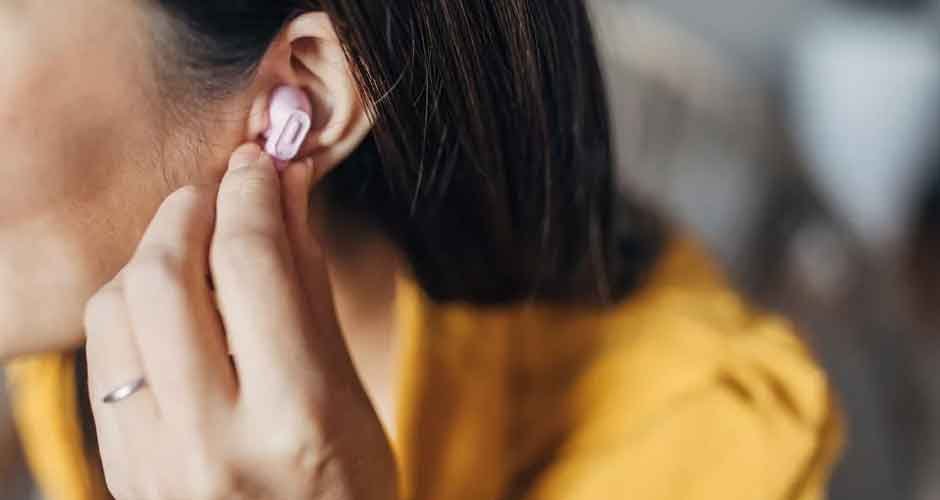Our ears play a crucial role in how we experience the world, yet they are often overlooked when it comes to self-care. Protecting your ears and maintaining good hearing health is essential for your overall well-being. Whether you’re already noticing changes in your hearing or simply want to keep your ears in top shape, there are several practical steps you can take. In this guide, we’ll explore essential care tips for your ears and hearing, helping you prevent potential issues and maintain optimal auditory health.
The Importance of Ear Care
Regular Ear Cleaning and Hygiene
Maintaining clean ears is an important part of ear care, but it’s essential to do it safely. Ear wax, or cerumen, is a natural substance produced by your ears to protect the ear canal from dust, debris, and infections. While ear wax is beneficial, excessive buildup can lead to discomfort, hearing difficulties, and even infections. Professional ear wax removal is often the safest option, especially if you experience frequent blockages or excessive ear wax production. Avoid using cotton swabs or other objects to clean your ears, as these can push wax further into the ear canal and cause damage.
Understanding the Risks of Over-Cleaning
It’s important to strike a balance when it comes to cleaning your ears. Over-cleaning or using improper techniques can cause more harm than good. The ear is a delicate organ, and excessive cleaning can irritate the ear canal, leading to infections or even damage to the eardrum. Your ears are designed to clean themselves naturally, so it’s best to leave the deeper parts of the ear canal alone and focus on gentle cleaning of the outer ear with a damp cloth.
Protecting Your Hearing from Noise
The Impact of Loud Noises
Exposure to loud noises is one of the leading causes of hearing loss. Whether it’s listening to music at high volumes, attending concerts, or working in noisy environments, repeated exposure to loud sounds can damage the delicate hair cells in the inner ear. Once these cells are damaged, they cannot regenerate, leading to permanent hearing loss. It’s important to be mindful of the noise levels you’re exposed to and take steps to protect your hearing.
Using Ear Protection
When you’re in an environment with high noise levels, such as a concert, construction site, or while using power tools, it’s crucial to use ear protection. Earplugs or earmuffs can significantly reduce the intensity of sound entering your ears, protecting your hearing from potential damage. There are various types of ear protection available, including disposable foam earplugs, custom-molded earplugs, and noise-canceling earmuffs. Choose the option that best suits your needs and make it a habit to use them whenever necessary.
Mindful Listening Habits
With the widespread use of headphones and earbuds, it’s easier than ever to expose your ears to potentially harmful noise levels. Listening to music or other audio at high volumes can contribute to hearing loss over time. To protect your ears, follow the 60/60 rule: listen at no more than 60% of the maximum volume for no more than 60 minutes at a time. Taking regular breaks and using noise-canceling headphones, which allow you to listen at lower volumes, can also help reduce the risk of hearing damage.
Recognizing the Signs of Hearing Issues
Early Detection of Hearing Loss
Hearing loss often occurs gradually, making it difficult to notice the early signs. However, early detection is key to managing and mitigating the effects of hearing loss. Pay attention to any changes in your hearing, such as difficulty understanding conversations, frequently asking others to repeat themselves, or noticing that sounds seem muffled. If you experience any of these symptoms, it’s important to schedule a hearing test with a professional audiologist.
The Role of Regular Hearing Tests
Just as you would visit the dentist or eye doctor regularly, it’s important to include hearing tests as part of your routine healthcare. Regular hearing tests can help detect any changes in your hearing before they become more serious. Adults should consider having their hearing checked every few years, or more frequently if they are exposed to high noise levels or have a family history of hearing loss. Early intervention can make a significant difference in preserving your hearing and improving your quality of life.
Managing Ear Infections
Preventing Ear Infections
Ear infections can cause pain, discomfort, and temporary hearing loss. They are particularly common in children but can affect people of all ages. To reduce your risk of ear infections, it’s important to practice good ear hygiene and avoid inserting objects into your ears. Additionally, keep your ears dry, especially after swimming or bathing, as moisture can create an environment where bacteria thrive.
When to See a Doctor
If you experience symptoms of an ear infection, such as ear pain, drainage, or a feeling of fullness in the ear, it’s important to see a doctor. Left untreated, ear infections can lead to more serious complications, including hearing loss. Your doctor may prescribe antibiotics or recommend over-the-counter pain relievers to help manage the infection. In some cases, recurring ear infections may require further evaluation by an ear, nose, and throat specialist.
The Connection Between Overall Health and Hearing
The Impact of Lifestyle on Hearing
Your overall health plays a significant role in the health of your ears and hearing. Conditions such as high blood pressure, diabetes, and cardiovascular disease can affect blood flow to the ears and contribute to hearing loss. Maintaining a healthy lifestyle—eating a balanced diet, exercising regularly, managing stress, and avoiding smoking—can help protect your hearing as well as your overall health.
The Role of Medications
Certain medications, known as ototoxic drugs, can cause hearing loss as a side effect. These include some antibiotics, chemotherapy drugs, and high doses of aspirin. If you’re taking medications and notice changes in your hearing, it’s important to consult with your doctor. They may be able to adjust your dosage or recommend alternative treatments that are less likely to affect your hearing.
Prioritizing Ear and Hearing Health
Taking care of your ears and hearing should be an integral part of your overall health routine. From practicing safe ear cleaning techniques and protecting your hearing from loud noises to recognizing the early signs of hearing issues, there are many steps you can take to maintain healthy ears and good hearing throughout your life. Regular check-ups with a hearing specialist, combined with mindful listening habits and a healthy lifestyle, can help ensure that you continue to enjoy the sounds of the world around you for years to come.












